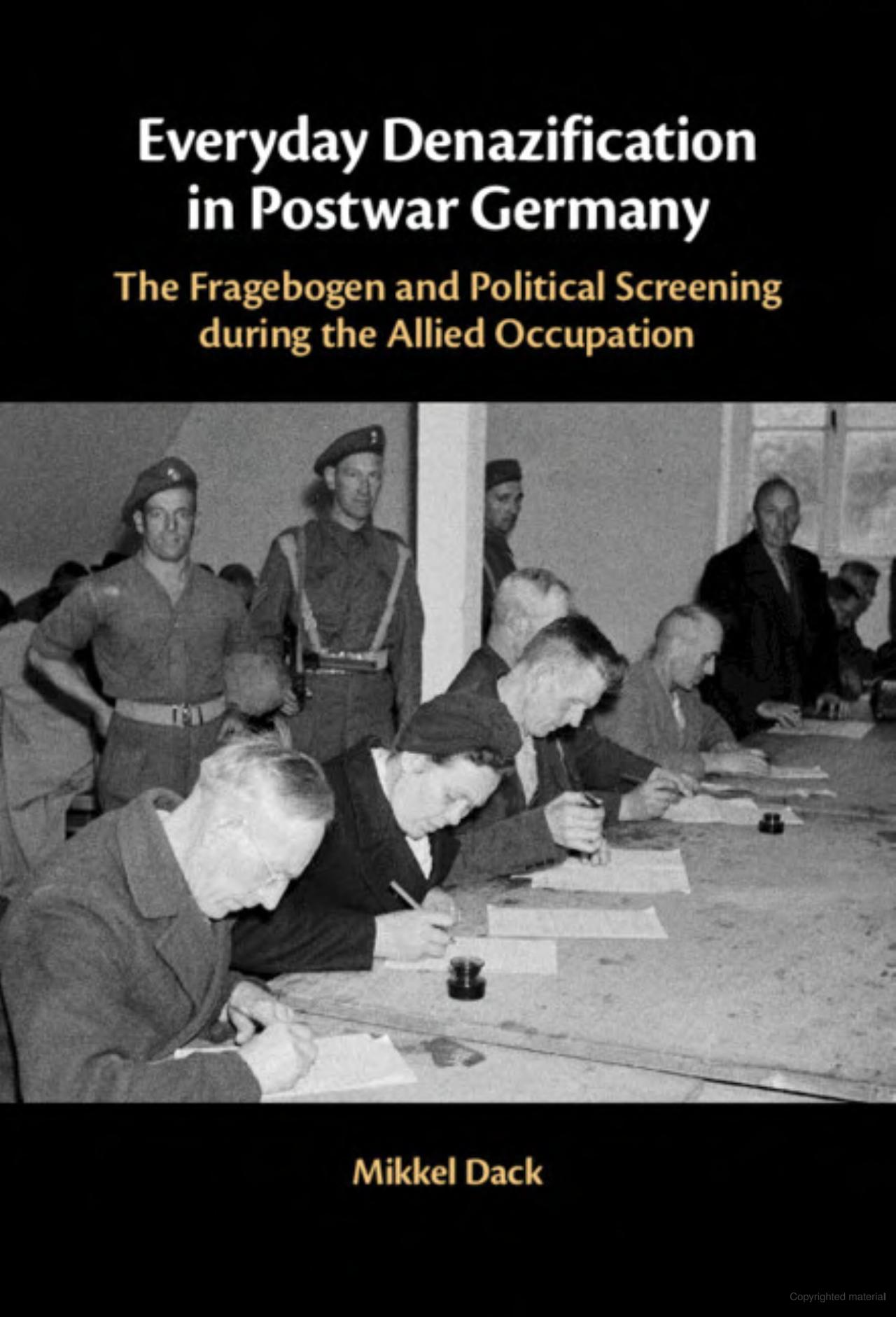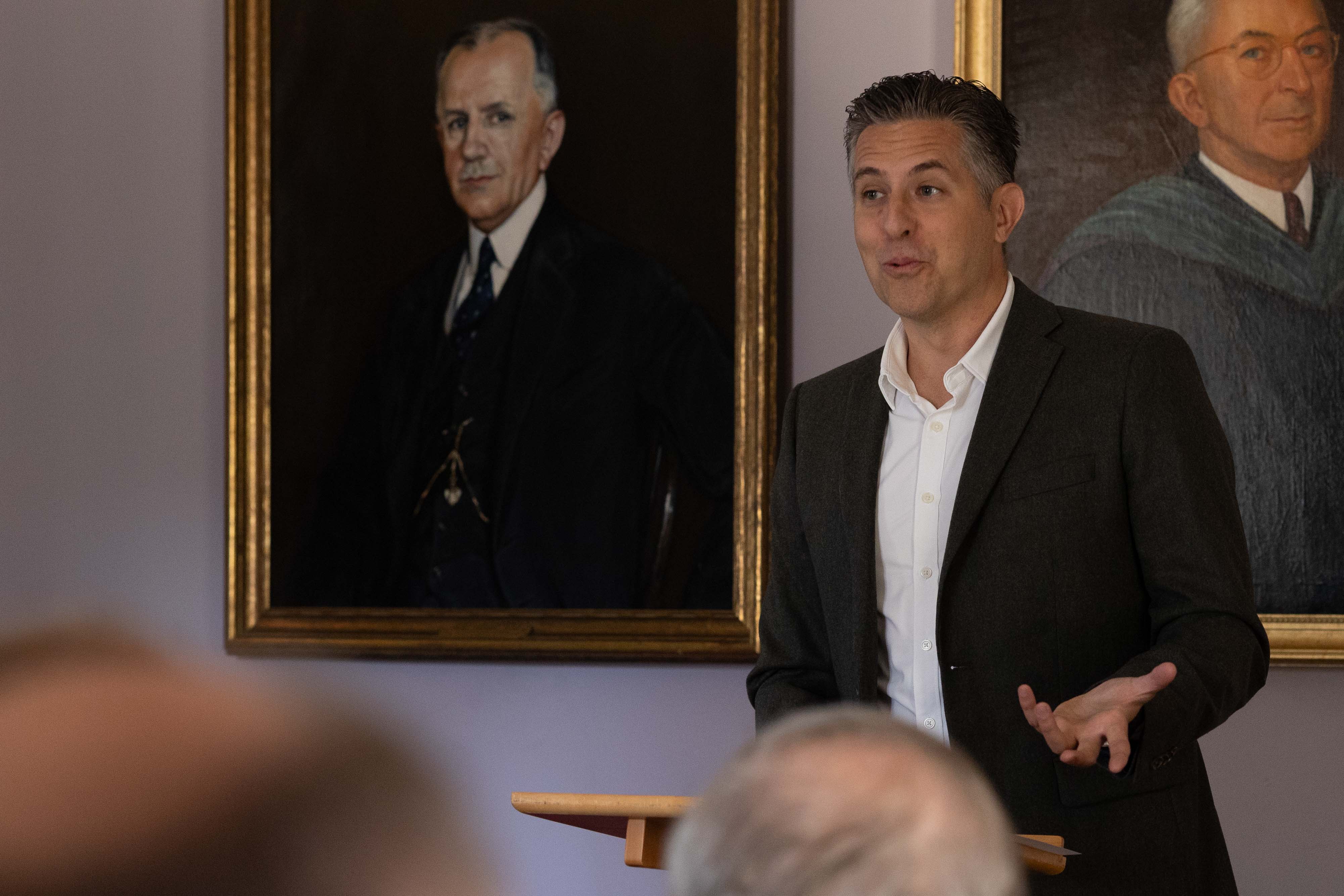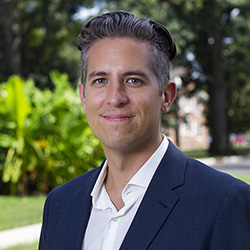Mikkel Dack, Ph.D.
Mikkel Dack, Ph.D.
Mikkel Dack, Ph.D.
Associate Professor
Biography
Mikkel Dack is a historian of Germany and modern Europe, with a particular interest in political violence, de-radicalization, and democracy. He teaches undergraduate and graduate courses on topics such as global Europe, World War II, Nazi Germany and the Holocaust, radicalism and dictatorships, comparative fascism, and historical methods.
 His book, Everyday Denazification in Postwar Germany: The Fragebogen and Political Screening During the Allied Occupation, appeared with Cambridge University Press in 2023. It explores Allied army efforts to simultaneously punish and reorient former Nazis after WWII and the material and emotional consequences of denazification for ordinary Germans. Learn more about his book by listening to this New Books Network interview or reading this Fifteen Eighty Four Blogpost. In recent years, Dr. Dack has also written research articles on post-WWII trauma recovery, memory construction and the whitewashing of Nazi pasts, Holocaust education and virtual reality, and eugenics legislation.
His book, Everyday Denazification in Postwar Germany: The Fragebogen and Political Screening During the Allied Occupation, appeared with Cambridge University Press in 2023. It explores Allied army efforts to simultaneously punish and reorient former Nazis after WWII and the material and emotional consequences of denazification for ordinary Germans. Learn more about his book by listening to this New Books Network interview or reading this Fifteen Eighty Four Blogpost. In recent years, Dr. Dack has also written research articles on post-WWII trauma recovery, memory construction and the whitewashing of Nazi pasts, Holocaust education and virtual reality, and eugenics legislation.
Dr. Dack is currently involved in a number of projects related to combating violent extremism in Europe and the United States, including a global history of anti-fascism campaigns in postwar Germany, Austria, Italy, and Japan (read more here). He has also begun work on The Deradicalization Database (DeRadDB), which is a digital inventory of historical undertakings to reduce, eliminate, and prevent violent political extremism. This catalogue will better inform how societies, especially those in the United States, identify and interpret violent extremism and how community groups, governments, and law enforcement agencies uphold democratic principles. For a sampling of his public-facing work, you can read pieces on the American fight against far-right domestic terrorism and Putin’s purge of Ukrainian culture.
Dr. Dack’s scholarship has been awarded grants and fellowships from an array of sources, including the German Research Foundation, German Historical Institute, German Academic Exchange Service, French National Research Agency, Botstiber Institute for Austrian-American Studies, and Social Sciences and Humanities Research Council of Canada. He is a Distinguished Guggenheim Scholar and a Humboldt Fellow.
In addition to his faculty position, Dr. Dack serves as Director of Research for the Rowan Center for the Study of the Holocaust, Genocide, and Human Rights.
For a full list of his articles and writing, visit: www.mikkeldack.com





